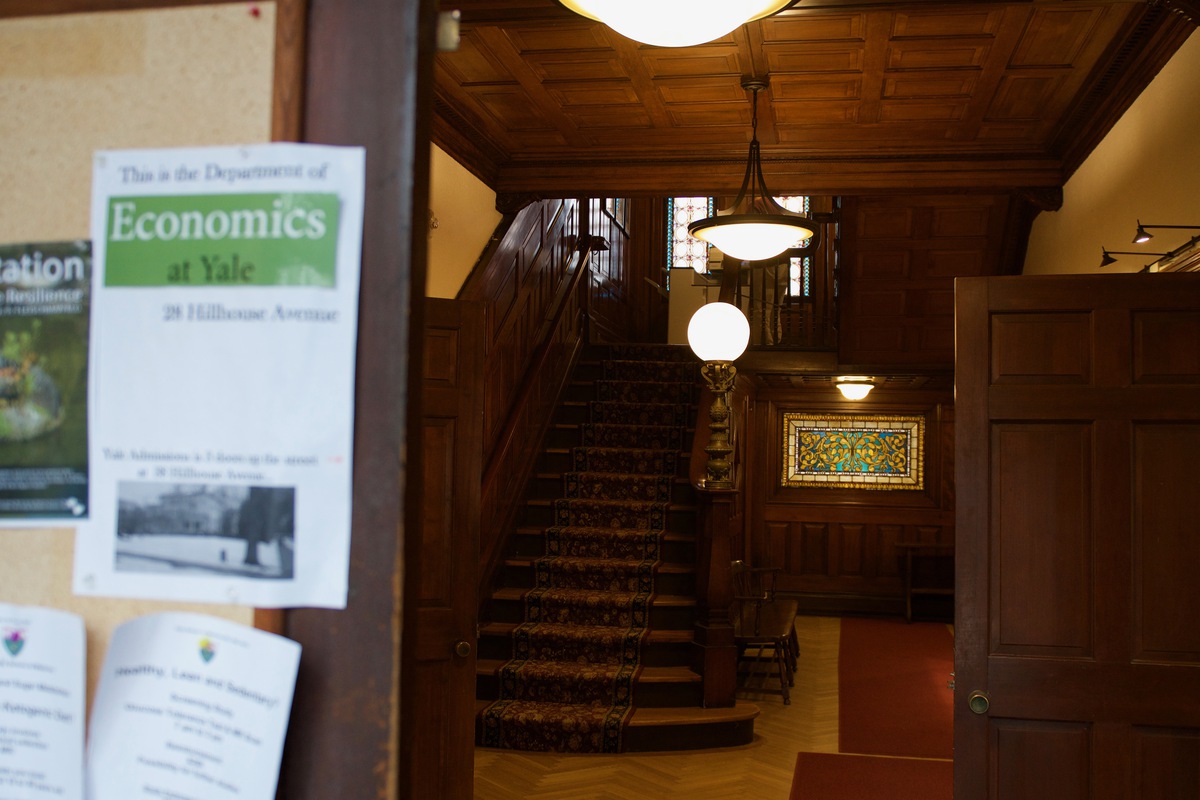Yale looks to India and South Asia as global research expands
As research initiatives expand across Yale, University researchers look to India and South Asia to solve pressing global issues.

David Zheng, Senior Photographer
As international academic initiatives arise and expand at Yale, researchers at the University — especially in economics — have been looking to South Asia, and India in particular, as a source of study and collaboration.
Yale’s global strategy currently encourages expansion into South Asia, especially India. Since the University’s announcement of international research priorities in 2019, Yale researchers have continued their work through a diverse set of academic disciplines. Partnerships between the University and the region have existed since the mid-20th century, and the past decade has seen a noticeable boost in the ties between the two. At the Yale Economics Growth Center, which professor of economics Rohini Pande directs, researchers have assembled a thorough panel dataset on India which has functioned since the late 1970s. Such research, according to Pande, has only increased in recent years. Yale’s revised global strategy — which is set to be unveiled next week — will further clarify the University’s priorities in the region.
“My understanding and one of the exciting things about working at Yale is that there’s a tradition and also continued interest in working in India,” said Charity Troyer Moore, who serves as co-director of Inclusion Economics at Yale.
Pande noted that Yale researchers’ interest in India is based on the country’s unique background.
According to Pande, researchers who work in economic development place an emphasis on creating equitable growth, questioning how scholarship can benefit the poorest people in the world when their country’s citizens will decide what to do for themselves. She stressed that when examining the development of individuals’ well-being, one should consider one of the most populated nations in the world, which approximately 1 in 7 people call home.
“There’s no other country like India for thinking about it,” Pande said. “Not only is it a very populous country, it’s also a democracy.”
Pande also noted India’s “very significant growth” over the last three decades, and its simultaneous increase in inequality, as factors that make the country an important site for economic research.
Political science professor Steven Wilkinson, who specializes in India and South Asia, pointed to the recent expansion of Yale-driven research into the region.
“Yale has, over the past decade, built up what I think is the best and broadest group of scholars in the USA working on early modern and modern India and South Asia,” Wilkinson wrote in an email to the News.
He attributed the University’s success to two factors. For one, a diverse set of scholars across different areas — from economics to political science to religion and comparative literature — specialize in the regions. Additionally, these scholars do not solely work within their own groups. Wilkinson said that the University’s initiatives, such as a successful series of discussions on South Asian economic development co-led by Chair of the University’s South Asian Studies Council Sunil Amrith, Jackson senior fellow Rory Stewart and Pande serve as an example of researchers “bringing together interdisciplinary audiences to discuss major development challenges.”
“The people involved are very collaborative, which means we are greater than the sum of our parts,” Wilkinson said.
The EGC and MacMillan Center are also preparing for the public launch of a joint research initiative, Inclusion Economics, which will specialize in India and other regions in South Asia, such as Nepal.
Moore noted the progress the program has made since eight years ago, when members began their outreach into South Asia.
“We sat down with senior civil servants in the government in India and said …we have some training, we have interest, we can work with data with you,” Moore said. “We’re economists — how can we help you?’”
Today, Moore and her team still have these interactions with government officials, as well as a team set up in India. They work closely with Inclusion Economics India Centre — a similar program at Krea University — to address India’s most challenging issues, ranging from climate change to women’s economic engagement.
Moore believes that the research conducted in the region has previously and continues to shape the work of University scholars.
The Yale Economic Growth Center was founded in 1961.
Correction, Feb. 24: This article has been updated to reflect additional individuals and groups who have worked on the projects with respect to India and South Asia at the University.







